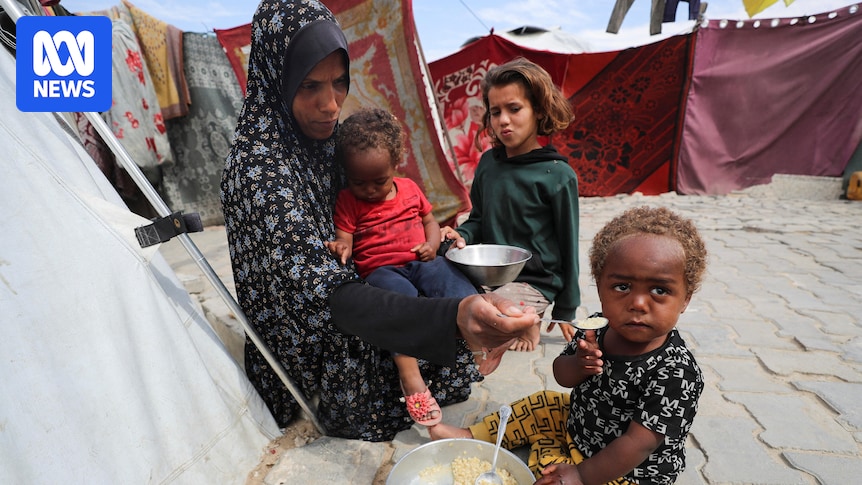UN Warns: 14,000 Gaza Babies at Risk – A Humanitarian Crisis Unfolds
The ongoing conflict in Gaza has escalated into a catastrophic humanitarian crisis, with the United Nations issuing a stark warning: 14,000 babies are at imminent risk. This alarming figure highlights the desperate situation facing vulnerable infants amidst widespread destruction, dwindling resources, and escalating violence. The lack of access to essential healthcare, food, and clean water is leaving these newborns incredibly vulnerable to disease, malnutrition, and death. The international community must act swiftly to avert a potential mass casualty event.
A Dire Situation for Gaza's Newborns
The UN's warning paints a grim picture. The 14,000 babies represent a significant portion of the newborn population in Gaza, already grappling with a pre-existing healthcare infrastructure strained to its breaking point even before the recent conflict. The consequences of this crisis are dire:
- Malnutrition: The blockade of Gaza has long limited access to essential food supplies, now further exacerbated by the ongoing conflict. Malnutrition is rampant, putting newborns at heightened risk of illness and death.
- Disease Outbreaks: Limited access to clean water and sanitation increases the likelihood of widespread disease outbreaks, particularly among vulnerable infants with weakened immune systems. The lack of medical supplies and functioning healthcare facilities only compounds this danger.
- Lack of Medical Care: Hospitals in Gaza have been damaged or destroyed, leaving many without access to critical medical care. Newborns requiring specialized attention are especially vulnerable, lacking access to incubators, essential medicines, and trained medical personnel.
- Psychological Trauma: The constant bombardment and displacement are causing immense psychological trauma for everyone, including parents and newborns. The stress and anxiety surrounding this crisis significantly impacts the health and development of infants.
The International Community's Response – Is it Enough?
While several international organizations and nations have pledged aid and support, the scale of the crisis demands a much more significant and immediate response. The UN's appeal for humanitarian assistance must be met with urgent action, including:
- Immediate Delivery of Medical Supplies: Essential medicines, equipment, and trained personnel must be rapidly deployed to Gaza to support overwhelmed hospitals and healthcare facilities.
- Ensuring Safe Access for Aid Workers: Unhindered access for humanitarian workers is crucial for delivering aid effectively. All parties involved in the conflict must guarantee the safety and security of aid workers.
- Addressing the Root Causes: The underlying issues that have contributed to Gaza's vulnerability, including the blockade and political instability, must be addressed through long-term solutions.
- Increased Funding: Significant funding is required to meet the immediate and long-term needs of the population, focusing specifically on providing crucial resources for newborns and their families.
A Call to Action
The plight of Gaza's 14,000 at-risk babies demands immediate and decisive global action. This is not just a humanitarian crisis; it is a moral imperative. We urge governments, international organizations, and individuals to contribute to relief efforts and advocate for a lasting resolution to the conflict. Every effort counts. Visit to learn how you can help. The lives of these vulnerable infants depend on it.
Keywords: Gaza, babies, UN, humanitarian crisis, conflict, newborns, malnutrition, disease, medical care, aid, international community, humanitarian assistance, emergency relief, Gaza crisis, children, infants, health crisis.

